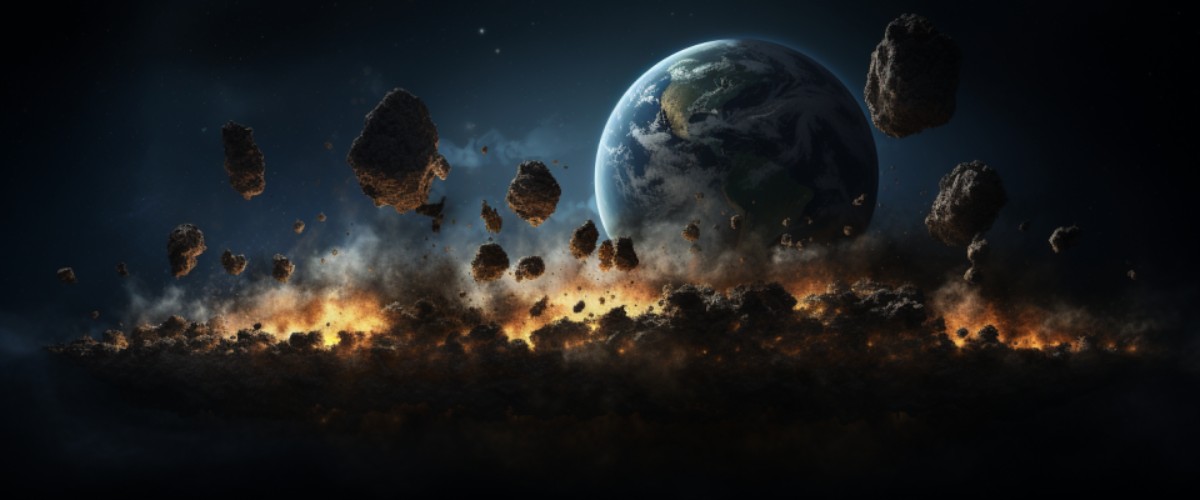Heralding the inception of our planetary home, the formation of the Earth roughly 4.5 billion years ago stands as a pivotal epoch in cosmic history. This monumental occurrence paved the way for the rich tapestry of life and ecological diversity that adorns our world today.
Background: Concoction of a Celestial Body
- A Stellar Nursery: The story unfolds within a molecular cloud, laden with gas and dust, setting the stage for stellar and planetary genesis.
- The Sun Takes Centre Stage: Approximately 4.6 billion years ago, the gravitational collapse of a region within this cloud ignited the formation of the Sun.
- Disc Formation: The residual disc of gas and dust orbiting the nascent Sun gradually coalesced to form planets, marking the outset of the solar system.
Major Happenings: Earth’s Fiery Infancy and Gradual Maturation
- Aggregation and Differentiation:
- Initial formation through the accretion of cosmic dust and gas.
- The gradual aggregation of material, catalysing intense heat and the differentiation of core, mantle, and crust.
- The Moon’s Inception:
- A colossal collision with a Mars-sized body, Theia, spurring the creation of the Moon from the ejected debris.
- Establishing Stability:
- The initial molten surface solidifying to establish a primitive crust.
- The initiation of tectonic activities and volcanism, shaping the early geological landscape.
- The Late Heavy Bombardment:
- A period of intense asteroid and comet impact, potentially delivering water and other volatile compounds to Earth.
Immediate Outcomes: A World Shaped by Turmoil
- Volatile Environment: The young Earth was hostile, with a surface bombarded by asteroids and an atmosphere choked with volcanic gases.
- First Oceans: As the planet cooled, water vapour condensed to form the primeval oceans.
- Origin of Life: Despite the initial harsh conditions, the first life forms—simple, single-celled organisms—emerged around 3.5 billion years ago.
Long-term Impact: Setting the Stage for Diverse Life and Civilisation
- Complex Life Emerges:
- The evolution from simple, single-celled organisms to complex, multicellular life over billions of years.
- Mass Extinctions and Biodiversity:
- The Earth underwent multiple mass extinction events, each reshaping the biosphere and paving the way for new forms of life.
- Rise of Humanity:
- The eventual emergence of Homo sapiens, leading to the development of civilisations, technology, and cultures.
Conclusion: The Inexorable Legacy of Earth’s Birth
The formation of Earth, an event engulfed in the mists of deep time, bestowed upon us a home, teeming with life and laden with diverse landscapes. This dynamic sphere, arising from cosmic dust and violent collisions, has nurtured life through its evolutionary journey from microbial genesis to complex biodiversity.
As we gaze towards the future, the birth of our planet reminds us of the fragility and impermanence of existence, prompting reflection on our stewardship and the preservation of our precious, blue-marbled home. The understanding of Earth’s formation not only unravels the secrets of our past but also illuminates pathways as we navigate the cosmic odyssey ahead.








